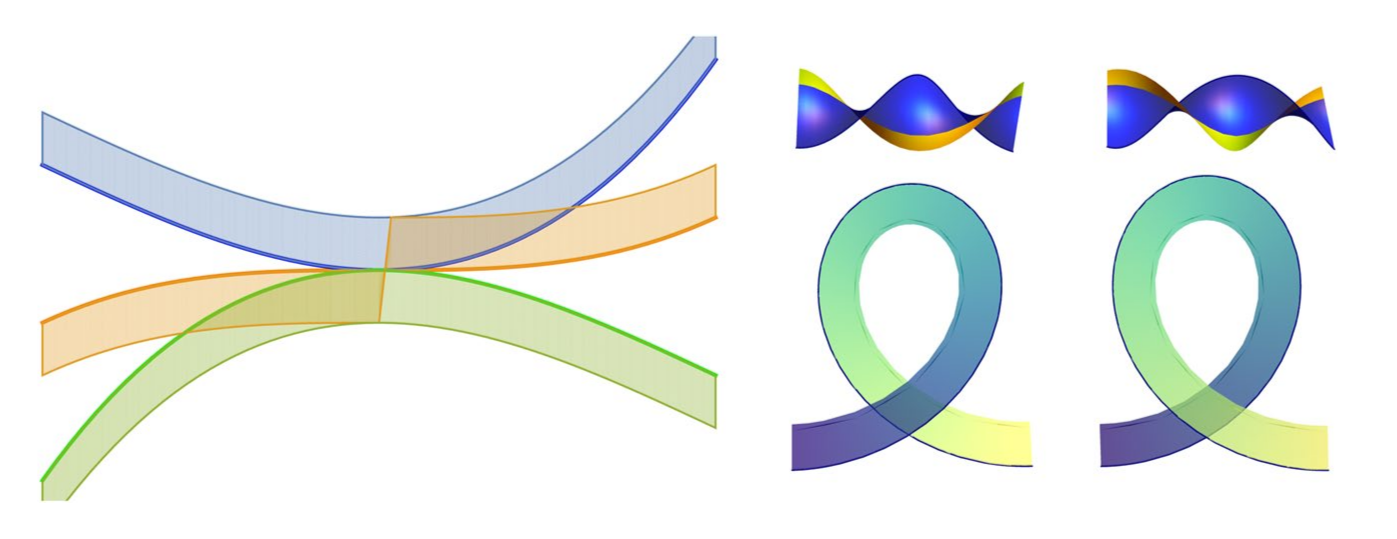Protein molecules can be approximated by discrete polygonal chains of amino acids. Standard topological tools can be applied to the smoothening of the polygons to introduce a topological classification of folded states of proteins, for example, using the self-linking number of the corresponding framed curves. In this paper we extend this classification to the discrete version, taking advantage of the “randomness” of such curves. Known definitions of the self-linking number apply to non-singular framings: for example, the Frenet framing cannot be used if the curve has inflection points. However, in the discrete proteins the special points are naturally resolved. Consequently, a separate integer topological characteristics can be introduced, which takes into account the intrinsic features of the special points. This works well for the proteins in our analysis, for which we compute integer topological indices associated with the singularities of the Frenet framing. We show how a version of the Calugareanu’s theorem is satisfied for the associated self-linking number of a discrete curve. Since the singularities of the Frenet framing correspond to the structural motifs of proteins, we propose topological indices as a technical tool for the description of the folding dynamics of proteins.
Download “Article preprint” Topological_indeces_proteins.pdf – Downloaded 338 times – 1 MB
Download a copy of the manuscript

